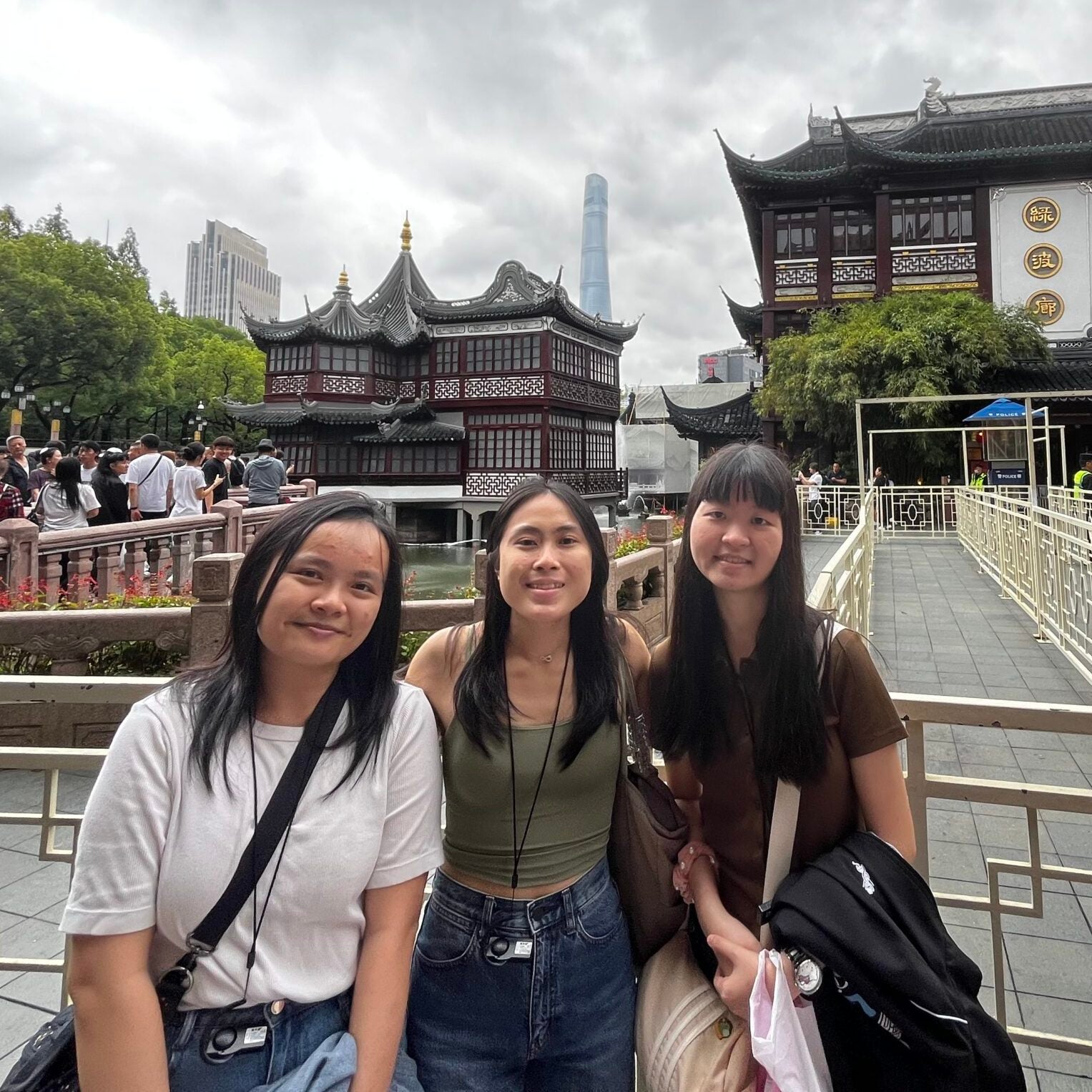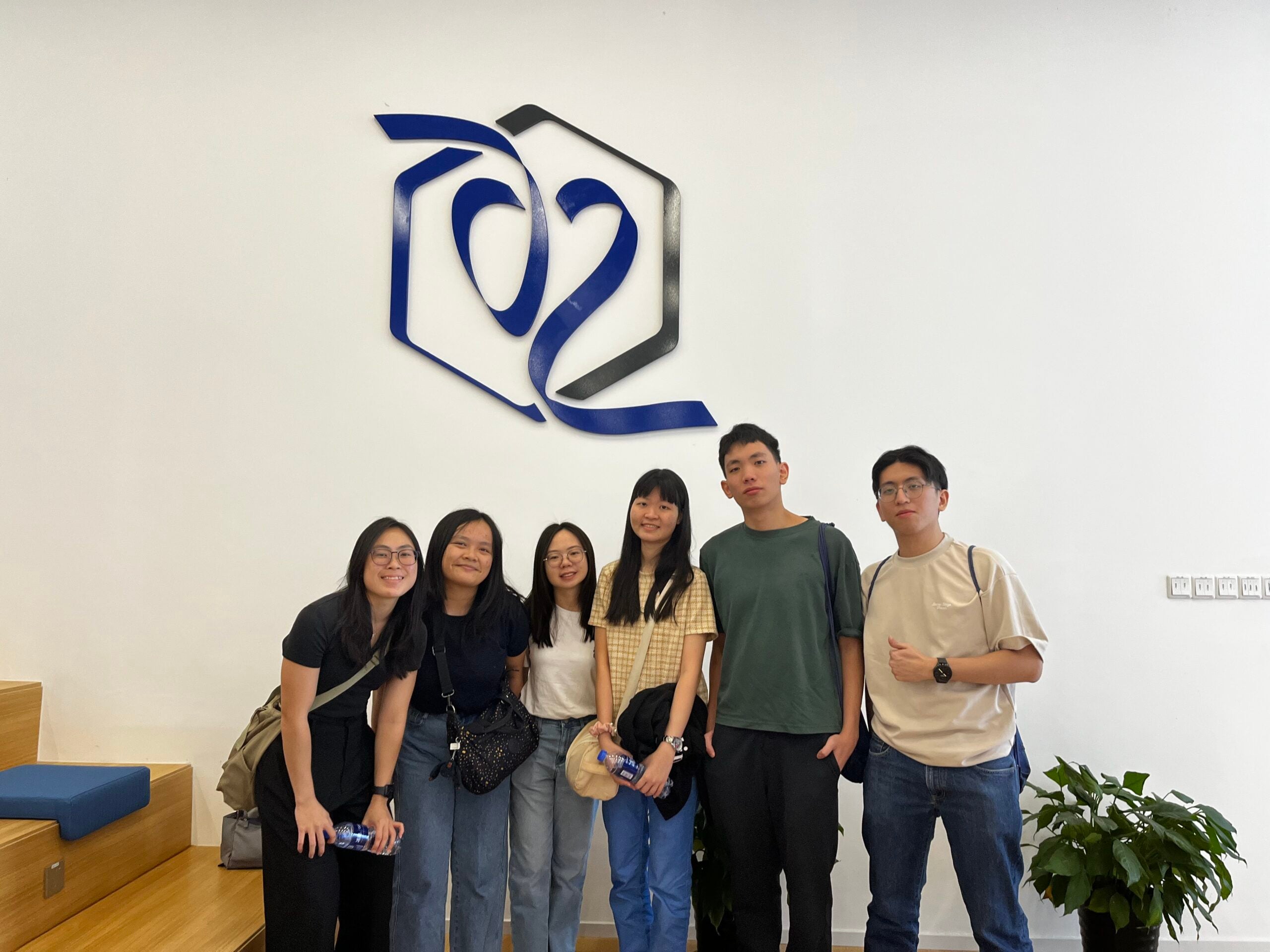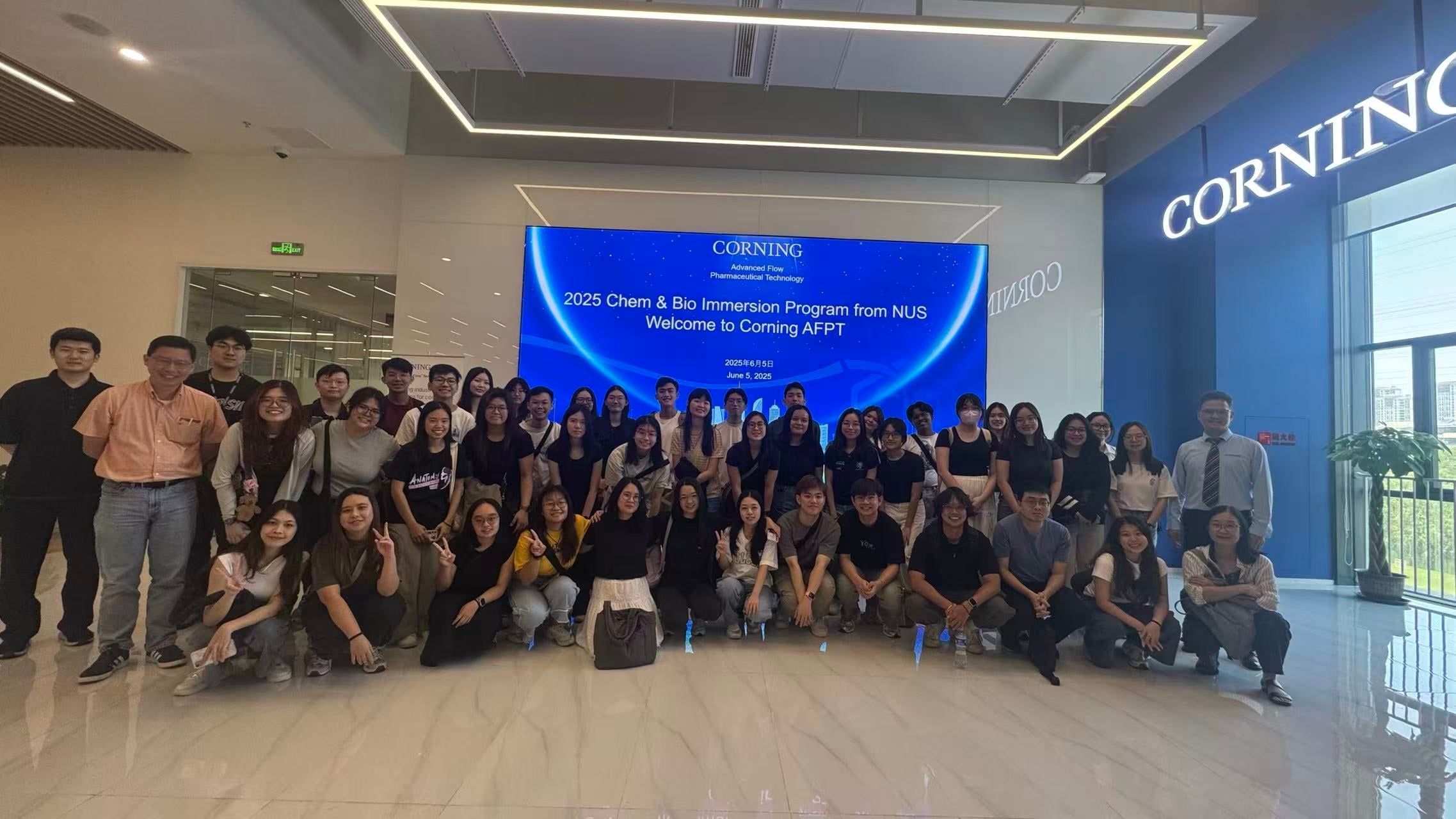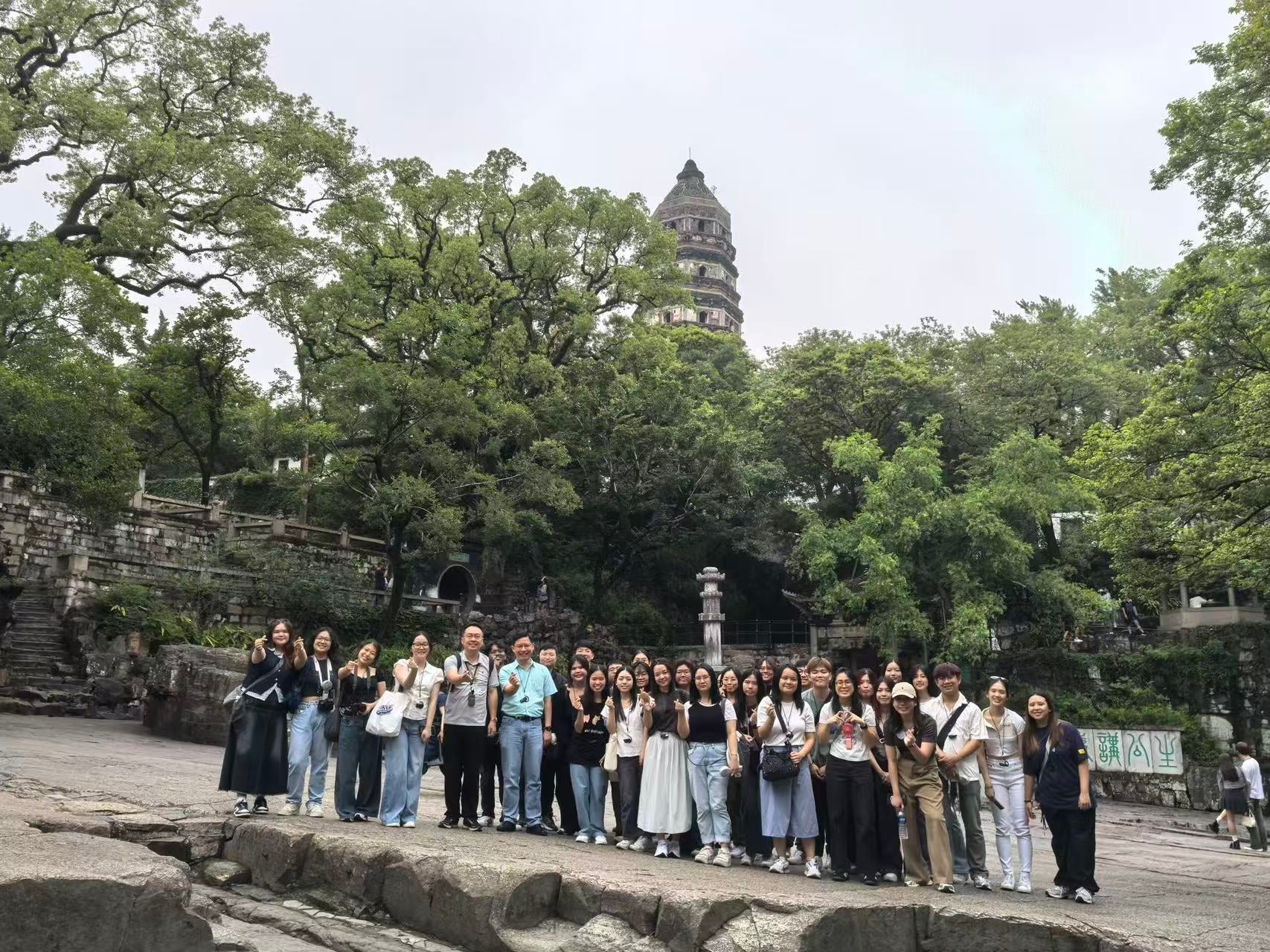Biotechnology beyond borders
October 13, 2025

When Vernice Lim signed up for the SP2400 Science & Technology Global Industry Insights course in China, she knew she was stepping into unfamiliar territory.
As a Life Sciences undergraduate with a deep interest in biotechnology and data analytics, Vernice’s long-term goal is to contribute to Singapore’s growing biotechnology landscape, where she can apply her scientific knowledge and analytical skills to address healthcare challenges.
Her immersion programme in China brought her a step closer to this goal. China, a rising powerhouse in science and innovation was “the perfect place” to explore the intersection of science, technology and business, Vernice says.

“I wanted to see how academic research translates into industrial applications and how multinational firms collaborate with local start-ups to drive technological growth,” she adds.
What she found went beyond academic lectures. From navigating Suzhou Industrial Park’s thriving biotechnology ecosystem to visiting start-ups and exchanging ideas with local students, Vernice discovered how deeply science is woven into China’s economic strategies. The experience gave her valuable insights on how policies, culture and industry come together to create an environment where innovation flourishes.

“The programme deepened my knowledge of how science-driven industries align with national economic strategies. With understanding of how China integrates biology, chemistry and commerce to create innovation-driven ecosystems, I can now better appreciate the link between research and application. The experience also inspired me to think critically about Singapore’s biotechnology ecosystem,” she says.
Of course, it wasn’t always easy. Language barriers and cultural differences sometimes made her feel like an outsider. However, through the small moments - like learning to take public transport or chatting with locals about their traditions - Vernice gained confidence to feel more connected.
Vernice also took the opportunity to immerse herself in China’s rich cultural landscape, which included exploring iconic landmarks, colonial buildings and traditional gardens, which led her to reflect on how history and modern development coexist in China.

Looking back, Vernice sees the trip as an important inflection point in her learning journey. “This experience taught me to recognise how policies and industrial planning influence scientific development, and second, to reflect on how these lessons can be applied in my future academic and professional work,” she says.

